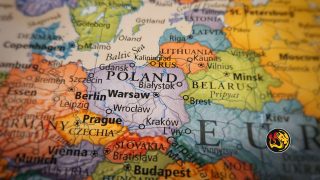
By Stefan J. Bos, Worthy News Europe Bureau Chief
WARSAW/BUDAPEST (Worthy News) – Poland has begun voting in a tight runoff vote for the presidency, with opinion polls showing a close race between a liberal and a nationalist.
Voters began choosing between two presidential candidates representing different political outlooks. Rafal Trzaskowski, 53, is the pro-European liberal, multilingual mayor of the capital, Warsaw, and the son of a prominent jazz musician. He is backed by Prime Minister Donald Tusk’s politically diverse governing coalition.
However, candidate Trzaskowski faces a tough challenge from nationalist historian and former amateur boxer Karol Nawrocki. The 42-year-old Nawrocki is endorsed by the populist-right-wing Law and Justice party that governed Poland between 2015 and 2023.
Observers say that a victory for Nawrocki would alter Poland’s supportive position toward war-torn neighboring Ukraine.
He spoke about the tense historical relations between the two nations and declared his opposition to Ukrainian membership in the NATO military alliance.
Yet, Nawrocki received public support from U.S. President Donald J. Trump and others of his administration, as well as Hungary’s Prime Minister Viktor Orbán.
But his campaign was overshadowed by allegations of wrongdoing, including questions over his acquisition of an apartment from an older man and his admission that he participated in an organized fight between 140 soccer hooligans in his youth.
OTHER CONTROVERSIES
Yet the pro-western Trzaskowski isn’t without controversy either: He faced allegations about foreign funding for online advertising promoting his candidacy.
Additionally, he had to defend himself against suggestions that he was out-of-touch and an elitist while backed by the unpopular Tusk government.
For Prime Minister Tusk, Trzaskowski must win.
While the Polish president’s role is mainly ceremonial, it carries some influence over foreign and defense policy. The president also has the critical power to veto new legislation.
A veto can only be overturned with a majority of three-fifths in parliament, which the current government lacks.
That’s why Sunday’s election is crucial for the future direction of Eastern Europe’s largest economy of some 39 million people, and a heavily Catholic nation.
Copyright 1999-2026 Worthy News. This article was originally published on Worthy News and was reproduced with permission.
Latest News from Worthy News
A Christian pastor in southern Mexico has been expelled from his village after refusing to participate in rituals linked to traditional religious practices, Christians told Worthy News on Thursday.
Far over budget but still less costly than some recent Games, Italy’s Milano-Cortina 2026 Winter Olympics opened over the weekend, with athletes from Russia and its ally Belarus competing only under a “neutral” designation amid continuing fallout from Moscow’s invasion of Ukraine.
Several Christian families in Pakistan’s Punjab province were recovering from injuries Sunday after what they described as “targeted attacks” by suspected Islamic extremists, reflecting broader pressure on Christians and other minorities in the Muslim-majority nation.
Portuguese voters headed to the polls Sunday in a high-stakes presidential runoff despite deadly storms that have battered parts of the country, with left-leaning former Socialist leader António José Seguro projected to defeat nationalist challenger André Ventura, according to exit polls.
A Christian pastor detained in Nicaragua since July 2025 has been released from prison but placed under house arrest along with five other Christian believers, Worthy News established on Thursday.
An injured Christian pastor in eastern India says recalling Bible verses gave him strength to survive hours of brutal abuse by a Hindu mob that accused him of converting Hindus to Christianity.
U.S. forces carried out five sets of precision strikes against Islamic State targets across Syria between Jan. 27 and Feb. 2, the U.S. military’s U.S. Central Command announced Wednesday.







